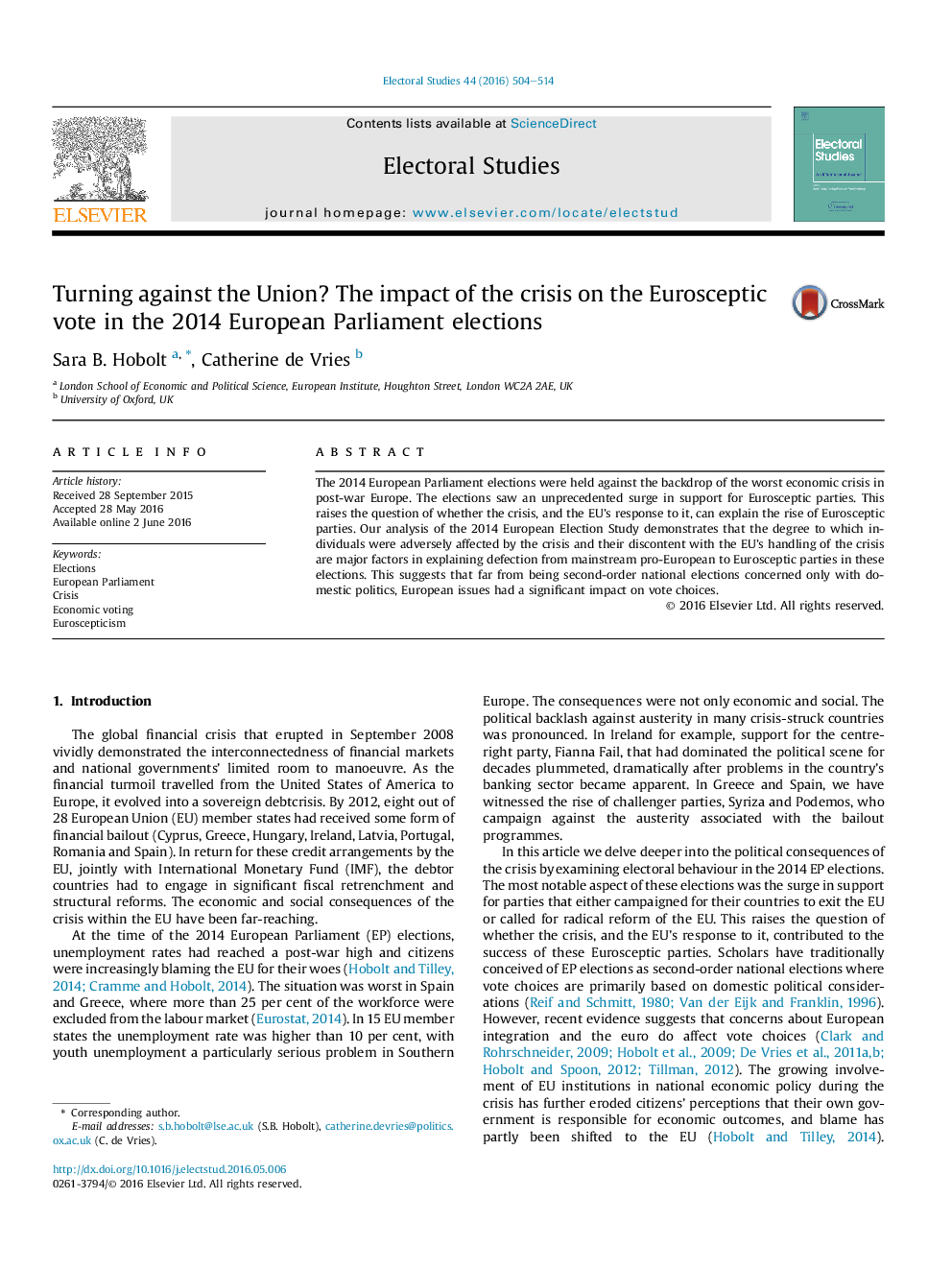| Article ID | Journal | Published Year | Pages | File Type |
|---|---|---|---|---|
| 7463503 | Electoral Studies | 2016 | 11 Pages |
Abstract
The 2014 European Parliament elections were held against the backdrop of the worst economic crisis in post-war Europe. The elections saw an unprecedented surge in support for Eurosceptic parties. This raises the question of whether the crisis, and the EU's response to it, can explain the rise of Eurosceptic parties. Our analysis of the 2014 European Election Study demonstrates that the degree to which individuals were adversely affected by the crisis and their discontent with the EU's handling of the crisis are major factors in explaining defection from mainstream pro-European to Eurosceptic parties in these elections. This suggests that far from being second-order national elections concerned only with domestic politics, European issues had a significant impact on vote choices.
Related Topics
Social Sciences and Humanities
Social Sciences
Geography, Planning and Development
Authors
Sara B. Hobolt, Catherine de Vries,
